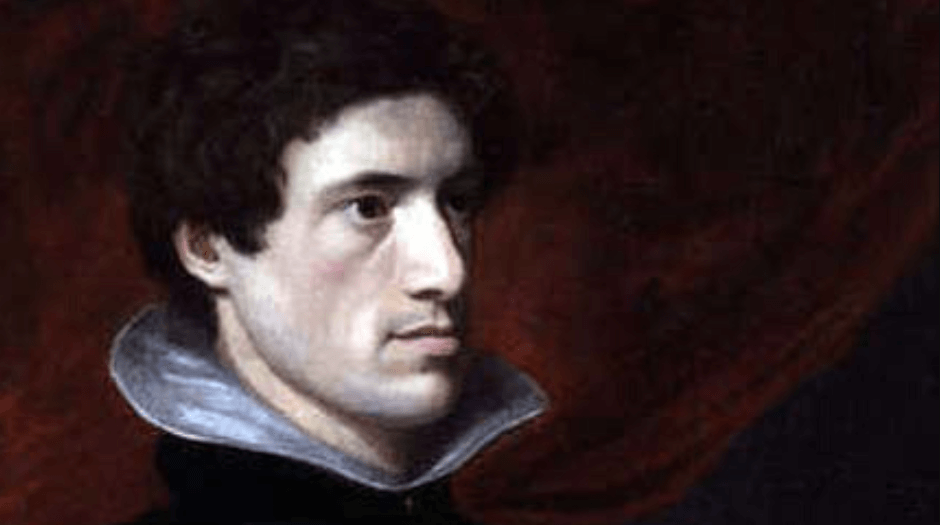Who was Charles Lamb? Explore the life and works of Charles Lamb, an eminent English critic and essayist. Discover his journey from Christ’s Hospital to his dedication to literature, his personal challenges, and his unique contributions to English literature, especially his famed Essays of Elia.

Charles Lamb; English critic and essayist: b. London, England, Feb. 10, 1775; d. Edmonton, Dec. 27, 1834. The son of a lawyer’s clerk, he was educated from 1782 to 1789 at Christ’s Hospital, the famous London charity school, where he was of the same generation as Leigh Hunt and Samuel Taylor Coleridge, and his memories of which are recounted in his essay Christ’s Hospital Five-and-Thirty Years Ago. The most crucial fact in his personal history is that his sister, Mary Ann Lamb (1764-1847), inherited a tendency toward insanity. In 1796, during one of her attacks, she killed their mother, and in order to care for her throughout her life Lamb remained a bachelor. Except for occasional intervals which she was forced to spend in an asylum, Mary was perfectly lucid; she kept house for her brother, acted as his hostess whenever they entertained their many literary and artistic friends, and encouraged his career as a writer.
Lamb spent his adult life from 1792 as a bookkeeper in the East India House, finally retiring on a pension in 1825. (Of his feelings and activities as a “gentleman of leisure,” his essay The Superannuated Man gives a delightful account.) Throughout the years of his business employment, however, he cultivated his passion for literature. He was the very definition of “booklover”; he haunted secondhand shops, always on the lookout for bargains, and regarded his collection of old volumes with a tenderness and delight recorded in many of his prose pieces. He had a particular affinity for the Elizabethan dramatists and for the 17th century prose writers Robert Burton and Sir Thomas Browne. The “quaintness” of his own discursive style, with its wayward flights of fancy, its inexhaustible allusiveness, and its heaping up of detail for either serious or humorous effect, is largely due to his devotion to these early masters.
Lamb was late in finding his true forte as a writer. His early productions, such as Blank Verse (published with Charles Lloyd, 1798), reflecting his rather groping attempts to work in the various forms of literature that were then the conventional means of expression for ambitious writers, are unimportant. He had filler paragraphs published in London newspapers as early as 1801, and indeed remained an occasional contributor to newspapers and weekly literary reviews until his death. With John Woodvil, a Tragedy (unperformed, but published in 1802) and the farce Mr. H (performed for one night, 1806), he made the gesture toward the theater that was almost requisite for every poet and prose writer of the romantic period in English literature. Lamb also turned his hand to children’s books. His most conspicuous success in this field was the famous Tales from Shakespear (1807), written jointly with his sister. These placid synopses of the plots of some of William Shakespeare’s plays, written down to the level of a child’s understanding, are interesting if read merely as moral stories, but they fail to communicate anything of the genuine intention and significance of the plays themselves.
Apart from the many passages of literary comment in the Essays of Elia and his personal letters, Lamb’s talents and shortcomings as a student of literature are best represented in his anthology, Specimens of English Dramatic Poets Who Lived About the Time of Shakespear (1808), the preparation of which was perfectly to the taste of one who loved both Elizabethan literature and the living stage. His essay arguing that King Lear is too tremendous a drama, in its philosophical and artistic conceptions, to be successfully presented in the theater, remains as provocative as it was when first printed. In criticism, Lamb’s most noteworthy achievement was the part he played in reviving interest in the Elizabethan drama, a portion of the English literary heritage which had been largely neglected, or at least gravely misunderstood, during the 18th century.
The name of Lamb, however, remains most closely identified with his pen name of Elia, under which he wrote the relatively slender sheaf of essays that first appeared in the London Magazine (1820-1825) and were subsequently collected in two volumes (1823, 1833). In the whole long tradition of English essay writing, there are no other pieces that better exemplify the full meanings of the terms “personal” and “familiar.” Unlike most of the other famous essayists, Lamb has little instructional or inspirational purpose; his design, rather, is to confess to his readers the variety and texture of his experience as a man in love with life—as a bibliophile, a rambler through the London streets, a sentimentalist, a connoisseur of odd personalities (his own and others’), an admirer of William Hogarth’s engravings, and (at least in pretense) a listener who far preferred the lively conversation of his friends to the loftier strains of music.
The Essays of Elia have no philosophy, unless a persistent relish of life, tinged with a gentle melancholy, can be dignified by such a name. The only coherence they have, as a whole, is supplied by the fact that they are all the products of one sensitive mind, which is perpetually curious not only about its own workings—its fluctuations of mood from the sober to the gay, its restless shifts of viewpoint from childlike naivete to delight in some dusty bit of esoteric Pearning— but about everything it meets in the world of day-to-day experience. Lamb’s essays are the rich, variegated, unabashed harvestings of a charming (and heroic) personality. And it is primarily because they are vitalized by their author’s winning manner, his unmistakable humanity, that the Essays of Elia immediately acquired a fame they have never lost, as one of the most heart-warming books in English literature.